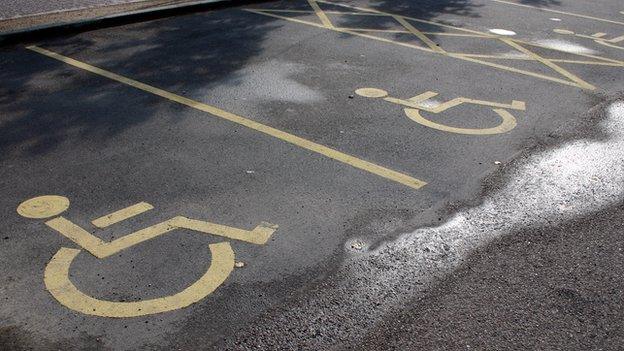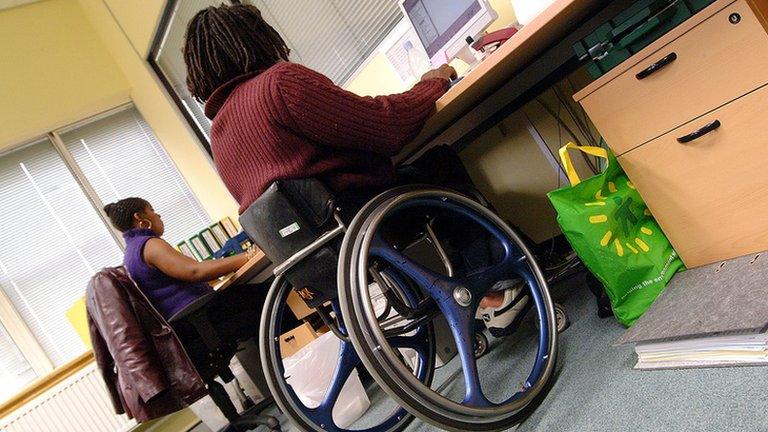Disabled shoppers 'should attract firms'
- Published

Robin Hindle Fisher says that disabled people needed to be savvy shoppers
Smarter businesses and savvy shopping could reduce the extra living costs faced by disabled people, the head of a new commission has said.
A year-long study into the premium paid by disabled people has been unveiled.
The commission's chairman Robin Hindle Fisher has said he wants to expose unscrupulous firms overcharging disabled people.
He said there is scope for reputable firms to attract the "purple pound" - the spending power of disabled people.
Mr Hindle Fisher is chairman of the Extra Costs Commission, launched by the charity Scope.
Costs to contribute
The commission will look at the costs faced by disabled people ranging from a higher transport bill to the price of specialist equipment.
Scope claims that this living costs premium facing disabled people amounts to £550 a month. This, it claims, is not covered by the typical total of £360 a month available to people through the main benefits to which they are entitled.
That is a position familiar to Jean Eveleigh. She has Ehlers-Danlos syndrome, which leaves her prone to dislocation of her joints and also affects her digestive system.
She said she has had to buy specialist equipment including wrist splints and a foldable walking frame. Even an umbrella that clipped to her wheelchair was much more expensive then a regular brolly, she said.

Jean Eveleigh has shopped around to cut her energy bill
"We are living for longer, the disabled community is only growing but we see the prices for disability equipment is also growing," she said.
"Why is everything so expensive? These are not insignificant things that people buy on a whim. They are things that people need to live, to contribute to society, and to have a quality of life that is on a par."
She has managed to cut costs at home by shopping around for energy, but said there were still items that would help her that she could not afford.

Damon Rose, editor of BBC Ouch!, writes:
There is funding, called Disability Living Allowance (and the Personal Independence Payment is its ultimate replacement). But Scope says it falls short of covering all of the extra costs.
It was brought in in 1991 under John Major's government. It was groundbreaking at the time as it acknowledged the extra costs disabled people faced, building on the earlier 1975 Mobility Allowance.
Such benefits come from government but other important care and support payments from local authorities are now often subject to critical needs tests, owing to austerity measures.

Insurance premiums
Mr Hindle Fisher, who has worked for 30 years in the financial services industry, said that encouraging competition among businesses to serve the sector would be one way of reducing these costs.
He said that the highlighting the size and attractiveness to business of the so-called Purple Pound - the spending power of disabled people - would encourage competition.
For example, a specialist broker in the insurance industry, Fish Insurance, finds insurance policies for disabled people.
Managing director John Garrard said that many disabled drivers had lower mileage, were more conservative drivers, and their adapted cars were less attractive for thieves.
Yet, many insurers, or price comparison websites, quoted higher premiums because the cars were considered to be "modified".
In fact, he said, policies could be found that meant premiums were lower than the average.
Malcolm Tarling at the Association of British Insurers said the mainstream insurance industry wanted to include as many people as possible.
However, pricing was based on risk. So any specialist and expensive equipment kept at home - whether it was for disabilities or not - meant the cost of replacement would be higher so premiums would be higher.
He encouraged people to shop around, talk to insurers, and contact a broker to secure lower-cost insurance.
- Published23 July 2014

- Published25 July 2014

- Published26 October 2013
